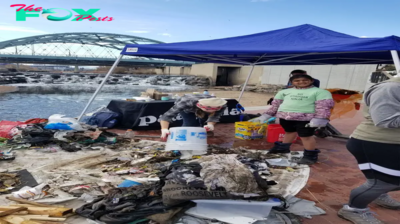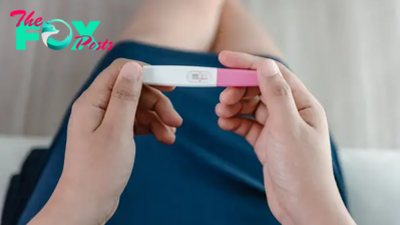US News
The Precarious Online Lives of Young Men
As the new school year is upon us, parents are worried about their children’s mental health—and they should be. The latest CDC data from the largest ongoing study on youth well-being finds high rates of helplessness, suicidal ideas, bullying, among other forms of violence. For girls, the rates are often higher. But boys are far less likely to seek help when they need it, and are more likely to take out their problems on others.
In recent years, lots of young men feel adrift—and as a result, oftentimes find solace in misogynist and anti-democratic spaces online. That’s the alarm being raised by experts, including the U.S. Surgeon General, who recently called for warning labels on social media platforms.
The crisis among young men is real. Equimundo (the organization one of us, Gary Barker, leads) carried out a 2023 national study of 18 to 45-year-old men in the United States, which found that two out of three 18-23 year olds said “No one really knows me well.” In addition, 30% of the youngest men said they see no one outside their home on a weekly basis. And about 40% thought about suicide in the past two weeks.
Read More: Why America’s Fathers Aren’t Living Up to Expectations
As leaders of two organizations concerned about young men’s mental Health and working to prevent violence online and off, these findings gave us pause. In the study, nearly half of men said their online lives are more interesting than their offline lives. Forty five percent of the youngest men said they trust one of the many angry, racist, misogynist, anti-democratic voices online. More trust Andrew Tate than the President. How do we hold a democracy together in light of that?
We recently shared these statistics with a group of high school boys of various ethnicities and income groups from the Washington, DC area. In response, the boys shared fears, doubts, frustrations about adults who judge and don’t understand, confusion about what it is to be a man, and concerns for despondent peers. They also told us about their search for friends, deeper relationships, and intimate partners—for just about everything—online.
In 2024, we followed up on that survey with a six-month long study of young men’s online lives, including an AI-assisted analysis of over 40 hours of Twitch streams, over 1.5 million lines of chat logs and 36,963 lines of Discord chat logs, and spent more than 100 hours observing the six largest male-dominated digital channels. And the results were striking: What we found was that, for young men, there is little distinction between “in real life” (IRL) and “online life.” Our review of young men’s online world confirms that their online communities dwarf their real-life spaces by a factor of at least a thousand. YouTube, the mothership of online platforms for young men, has about 2.49 billion monthly active users, between 55%-65% of which are men. Fantasy Football has 75 million users, more than two-thirds men. By contrast, 750,000 young men belong to U.S. fraternities and more than 1.1 million are in Scouting America. The upshot is that young men’s largest gathering spaces are online and much of their lives are spent in virtual meeting spaces. This means that we have to pay attention to what’s happening there—the positive, the harmful, and the in between.
Despite what we often think of the "manosphere," YouTube, Reddit, Fantasy Football, and other sites popular with young men lean more positive than negative. Queries like this one, posted by a young man on Reddit, speak volumes: “Hey other dudes. How many of you are dealing with the existential dread of not being able to afford it like our fathers and grandfathers were able to?” Thousands posted “likes” to that question in agreement and solidarity. From economic stress to gaming, being loveless to being a "lookmaxxer" seeking to improve physical appearance, young men feel that the internet gets them and their deepest fears.
In reality, the absence of real-life connections in the manosphere often becomes a space where misogyny and conspiracy theories feed real-life violence or self-harm. The pathway from clicking on or following the dark sides of the web—and engaging in violence or self-harm because of it— is, of course, complex. And while the majority of visitors in even the most misogynist spaces don’t carry out harm, frequent internet use has been associated with loneliness, poor communication with family, and depression. These unhealthy online spaces don’t just mirror those feelings—they often exacerbate them.
How can parents, educators, and media content makers help? First, we need to trust the boys. Young men (and young women) can be critical consumers and citizens in their online worlds. Start with a belief that young men’s engagement with dubious content online is not an automatic pathway to self-harm and violence.
Second, talk to young men. Researchers at the University of Liverpool developed a “Men for Change” curriculum that engages young men in conversations about what they consume online and were able to measure important attitude shifts. Parents, Business leaders, and organizations have to get in the conversation, too. Vodafone's AI "aggro-rithms" campaign, for instance, raises awareness about how harmful AI algorithms target Britain’s boys and included a toolkit that supports parents in having online safety conversations with their children.
Read More: Parents Need to Talk to Their Sons About Care
Third, build on the many iNFLuencers and spaces that already connect positively with young men. Such iNFLuencers are out there and can be engaged—we need to turn up the traffic to those spaces, as the men’s Health group Movember has done.
Finally, guide young men to safer spaces—in real life— particularly when they are on the cusp of going down the rabbit hole to one of the angry, dark spaces, and are on the verge of causing harm to themselves or others. The group Diverting Hate, for instance, uses redirection campaigns—essentially buying ads linking to healthy manhood messages. Their results show that about 50% of users on platforms with harmful content looked at the ads, and in one setting they measured an increase in interest in positive off-line spaces for men.
Our work tells us that harmed young men, cut off from others, too often harm themselves or others. But if we engage them, care for them, listen to them, understand what they consume online, they both live better lives and they become better allies for others—for women’s rights, for racial justice, for our democracy—they will find their way. Let’s stay in the room for the difficult talks. Engage. Listen more. Don’t panic.
-

 US News3d ago
US News3d agoWill J.D. Vance and Tim Walz Actually Face Off? What to Know About the Scheduled VP Debate
-
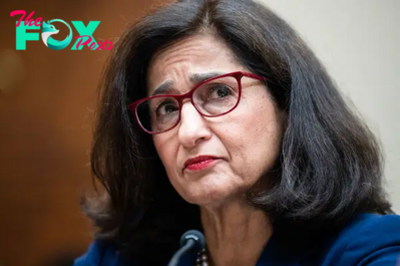
 US News4d ago
US News4d agoColumbia President Minouche Shafik Resigns After Brief Tenure Marked by Protests
-

 US News4d ago
US News4d agoHidden Report Reveals How Workers Got Sick While Cleaning Ohio Derailment Site
-

 US News4d ago
US News4d agoNassau County Enacts Face Mask Ban, First of Its Kind Post-Pandemic
-

 US News4d ago
US News4d ago4 Injured In Shooting at Virginia State University. Police Have Multiple Suspects
-
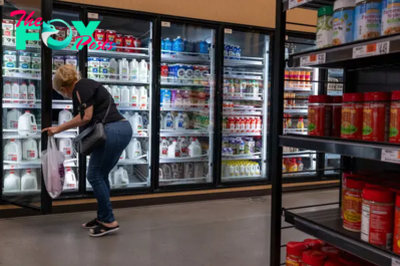
 US News4d ago
US News4d agoYes, Inflation Is Going Down. But Here’s Why Prices Aren’t
-
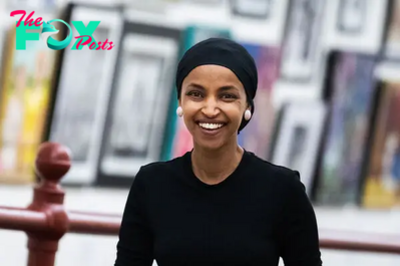
 US News4d ago
US News4d agoIlhan Omar Successfully Defends House Seat Amid Primary Challenges to Progressive ‘Squad’
-

 US News5d ago
US News5d agoPuerto Rico Cancels Classes, Activates National Guard as Tropical Storm Ernesto Approaches






